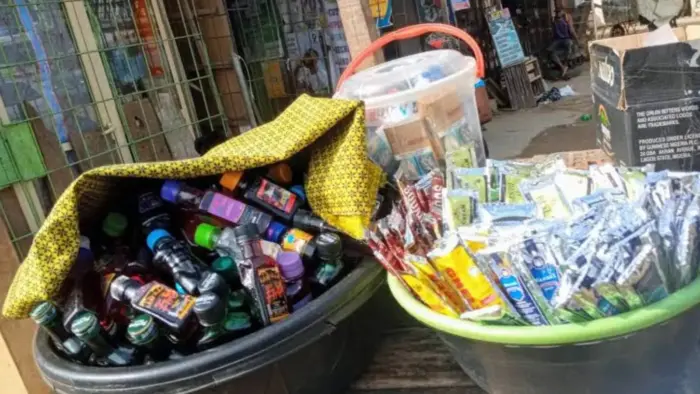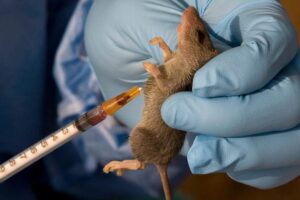The Coalition for Healthy Food Advocacy (CHFA) has thrown its weight behind the National Agency for Food and Drug Administration and Control (NAFDAC) as the agency prepares to implement its ban on sachet and small-volume alcoholic beverages.
NAFDAC’s restriction, which takes effect in December with full enforcement scheduled for January 2026, is aimed at eliminating the production, distribution, and sale of alcohol in sachets and containers below 200 millilitres.
In a statement issued on Thursday, CHFA urged manufacturers, distributors, retailers, and market associations to comply fully with the directive.
It also called on security agencies and state governments to support NAFDAC in monitoring markets, shutting down illegal production sites, and preventing banned products from returning to circulation.
The coalition stressed the need for continuous public sensitisation to help communities understand the health and safety reasons for the ban, describing the move as essential to protecting children, curbing non-communicable diseases, and improving Nigeria’s food environment.
CHFA warned that the ongoing circulation of cheap, high-strength alcoholic drinks in sachets poses serious risks, particularly to young people and low-income communities.
It said such products are often linked to early alcohol initiation because they are inexpensive, potent, and widely available in informal markets where age restrictions are poorly enforced.
It noted that enforcing the ban would shield children and adolescents from exposure that could lead to lifelong health and social consequences.
The coalition recalled that the enforcement follows a five-year moratorium agreed in 2018 between NAFDAC, the Federal Ministry of Health, the Federal Competition and Consumer Protection Commission, and beverage manufacturers.
The phased approach, it said, was designed to give producers adequate time to discontinue high-risk packaging.
Citing community reports, CHFA said sachet alcohol has disproportionately harmed low-income neighbourhoods, intensifying addiction, violence, and economic hardship.
It explained that alcohol contributes to more than 200 disease and injury conditions, including liver disease, hypertension, stroke, several cancers, and complications for people with diabetes.
Products sold in sachets, it added, often contain high alcohol concentrations and are consumed quickly, fuelling binge drinking, road crashes, unsafe sexual behaviour, poisoning, and premature deaths.
Beyond health dangers, the coalition highlighted alcohol’s broader impact on nutrition, warning that heavy consumption can displace healthy foods and worsen nutrient absorption and glycaemic control.
It said the ban supports ongoing national nutrition policies, including sodium reduction, trans-fat elimination, and the push for Front-of-Pack Labelling.
The group further drew attention to the economic burden of harmful alcohol use, pointing to rising healthcare costs, productivity losses, and road traffic injuries.
These costs, it argued, outweigh revenue generated from alcohol sales.
Quoting Akinbode Oluwafemi, Executive Director of Corporate Accountability and Public Participation Africa, CHFA said communities have endured alcohol-related violence and addiction for years, stressing that public health must take precedence over profit.
Dr Jerome Mafeni, Lead Technical Advisor at the Network for Health Equity and Development and CHFA’s Secretariat Lead, noted that removing sachet alcohol aligns with national strategies to combat hypertension, diabetes, and cardiovascular diseases.
He maintained that a healthier population is crucial to national development.
According to CHFA, eliminating sachet alcohol from the market is a necessary step toward building a safer, healthier, and more productive Nigeria.





